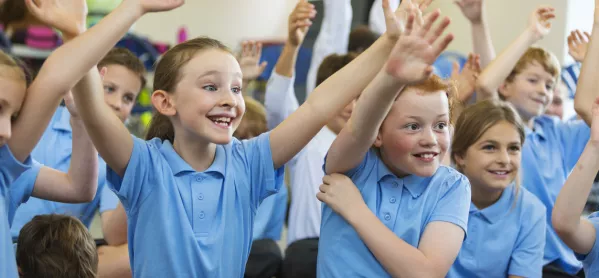The proportion of children gaining places at their first choice of primary school may have fallen in a number of areas of England, a survey on National Offer Day 2020 suggested.
Early indications from a Press Association survey of local authorities suggest, in some parts of the country, up to one in six families have missed out on their top pick, rising to more than one in four pupils in some London boroughs.
Coronavirus: DfE flags risk of school places shortage
Comment: School admissions: Don’t just rearrange the deckchairs
Related: ‘Haphazard’ school admissions hinder choice, warn heads
The poll, sent to councils across England, suggests that a number of local authorities have seen a fall in the proportion of children getting their first preference.
Early figures from 67 councils which provided comparable data show that 36 have seen a fall in the proportion of pupils getting their first choice compared to last year, while 25 have seen a rise and six have seen no change.
The poll found that, across the capital’s 33 boroughs, 85 per cent of families were given their first choice of primary school this year - a fall on last year.
More than one in seven (15 per cent) did not get their preferred school.
Kensington and Chelsea had the lowest proportion of children getting their top choice at 70.5 per cent, and in Hammersmith and Fulham just 73.3 per cent secured their first preference.
Meanwhile outside London, only 83.4 per cent of children got their first preference in Reading, Berkshire, a fall on last year, while in Birmingham, among all applicants, 87.7 per cent got their top choice, also a
drop on 2019.
Among the areas where very high proportions of pupils have achieved their top choice are North East Lincolnshire, where 97.5 per cent got their
first pick, and the East Riding of Yorkshire, with 97.1 per cent.
The Department for Education has changed its rules this year amid the coronavirus pandemic so that parents unhappy with their school place will not have to make an appeal in person.
Appeal panel hearings will be able to take place “in person, by telephone, video conference or through a paper-based appeal”.




